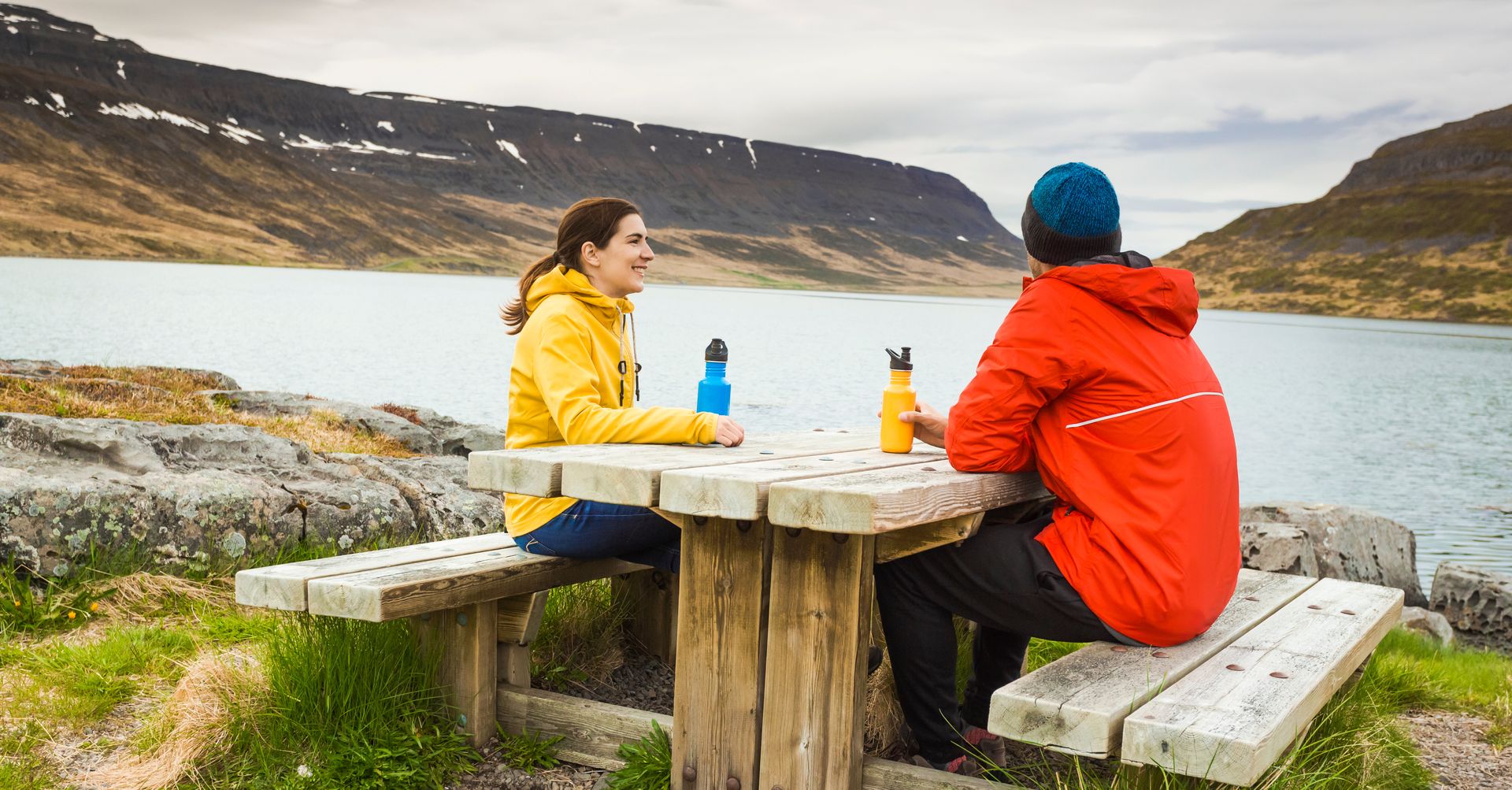 Icelandic Culture
Icelandic CultureHow to be an Eco-Friendly Traveler in Iceland
In a time where climate change and global warming are hot topics, it is important to do your part to help the environment. Traveling can generate a lot of waste even though we don’t mean to contribute towards it. When we are home we have everything we need, which means cutting back on environment-harming products, such as plastic. But when we are in a new place, it is easier to let go of normal habits. Every little bit helps when protecting the environment. That is why we are going to explain the small things you can do to be an eco-friendly traveler in Iceland.
What is an Eco-Friendly Traveler?
First, let’s talk about what an Eco-Friendly Traveler is. While the word “eco-friendly” may make you think of electric cars and charging stations, it is actually more vast than that. Being an eco-friendly traveler means that you are helping the environment rather than hurting it. This could range from choosing travel companies or airlines that are mindful of the environment to packing a reusable bag.
It is also being aware of your footprint when visiting places. While we cannot change the world as much as big companies can, we can make a few small changes instead. We are going to go over how you can help the environment by just altering a few of your habits. Here is our list of how to be an eco-friendly traveler in Iceland!
What makes Iceland eco-friendly?
Iceland is a geothermal paradise thanks to its volcanic landscape. Glaciers in Iceland cover around 11% of the entire country.
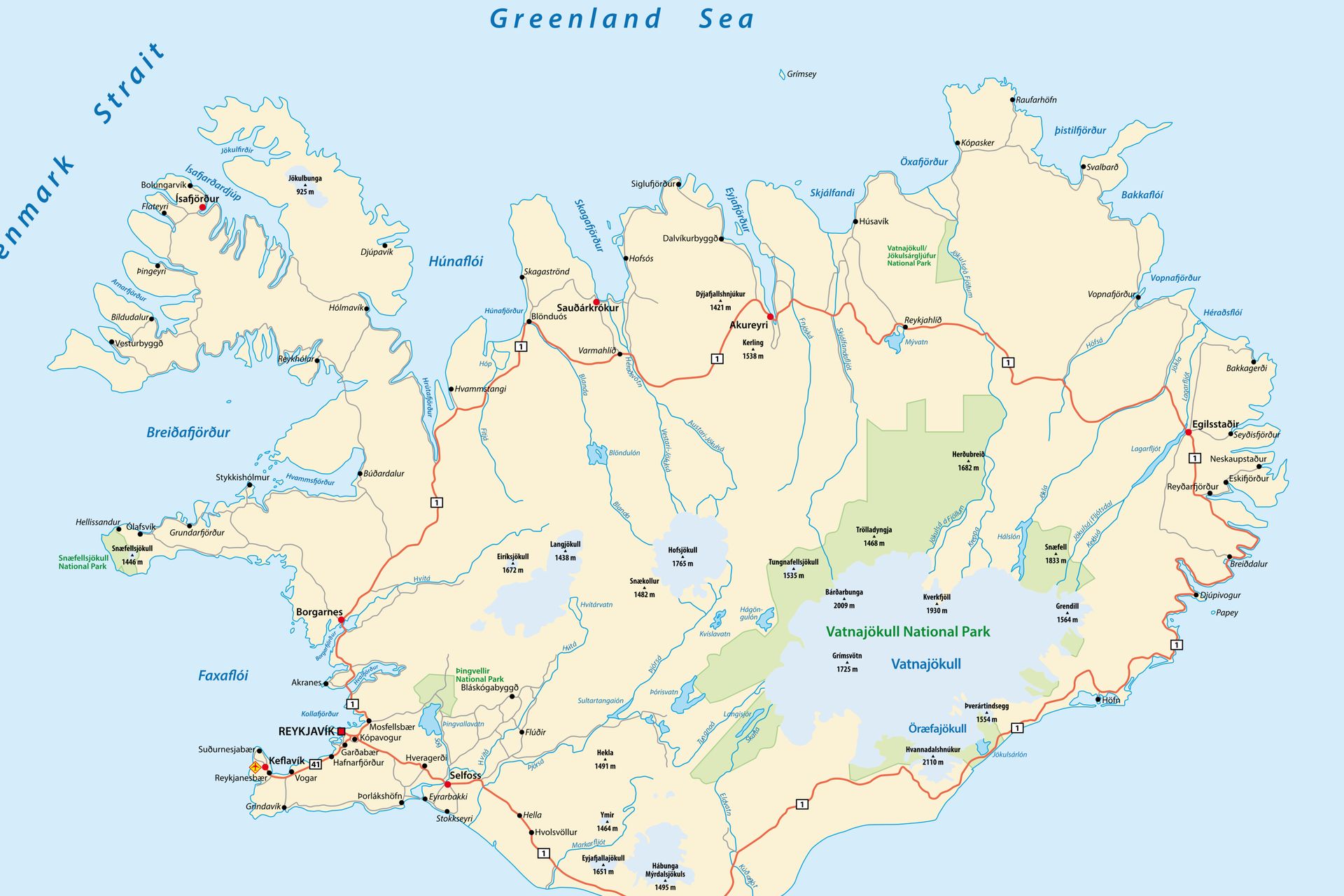
As a result, seasonal melt fills glacial rivers that run from mountains to the sea contributing to Iceland’s hydropower resources. The country also has an intense amount of wind power potential.
The country's heat and electricity for single-family homes are largely powered by green energy from hydro and geothermal sources. The only exception is a reliance on fossil fuels for transport. In addition to that, it is used to melt snow off sidewalks, heat swimming pools, power fish farming, greenhouse cultivation, and food processing, as well as for the production of cosmetics, such as merchandise from the Blue Lagoon.
Iceland is a world leader in renewable energy, with 100% of Iceland's electricity grid produced from renewable resources. 85% of the total primary energy supply in Iceland is derived from domestically produced renewable energy sources. The geothermal and hydropower in the country provide eco-friendly benefits for the whole country.
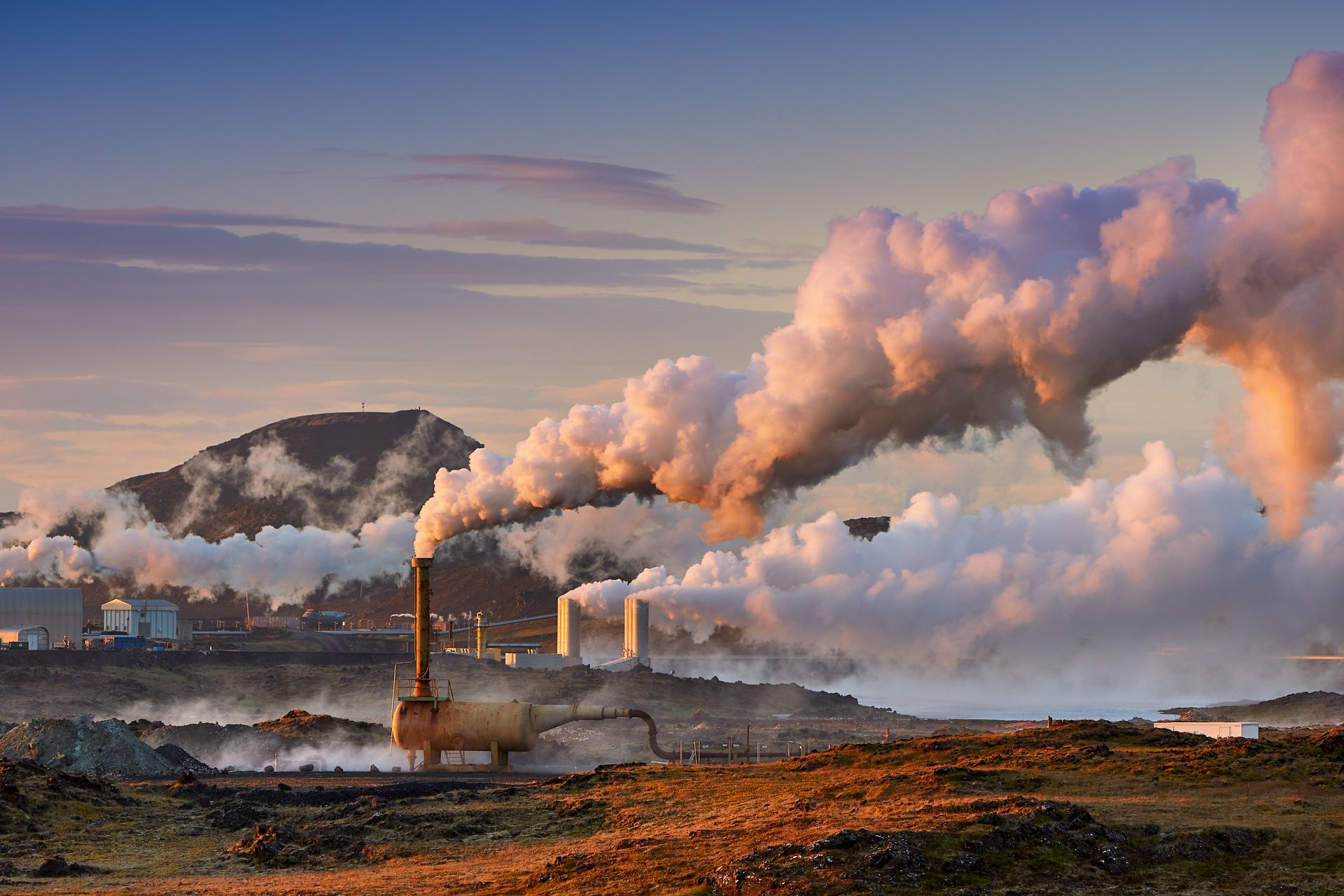
So how can you help sustain this? Try one of our nine tips for being an eco-friendly traveler in Iceland.
9 Tips For Being An Eco-Friendly Traveler in Iceland
1.Use A Reusable Shopping Bag
Reusable shopping bags are one of the best ways to be an eco-friendly traveler. Some countries even ban using plastic or paper bags, while others charge a fee to use a plastic bag in the store. To avoid all of this, bring your own bag. It is easy to fold up and store in your carry-on or luggage and it helps the environment at the same time.
Because let’s face it, how many times have you thrown out a plastic bag within the same hour of getting one? Probably just as much as the average person. The reality is, we don’t realize how much plastic or paper we are wasting when doing this. If you do not have a reusable shopping bag, try reusing the same plastic or paper bag you get.
2. Take A Nonstop Flight
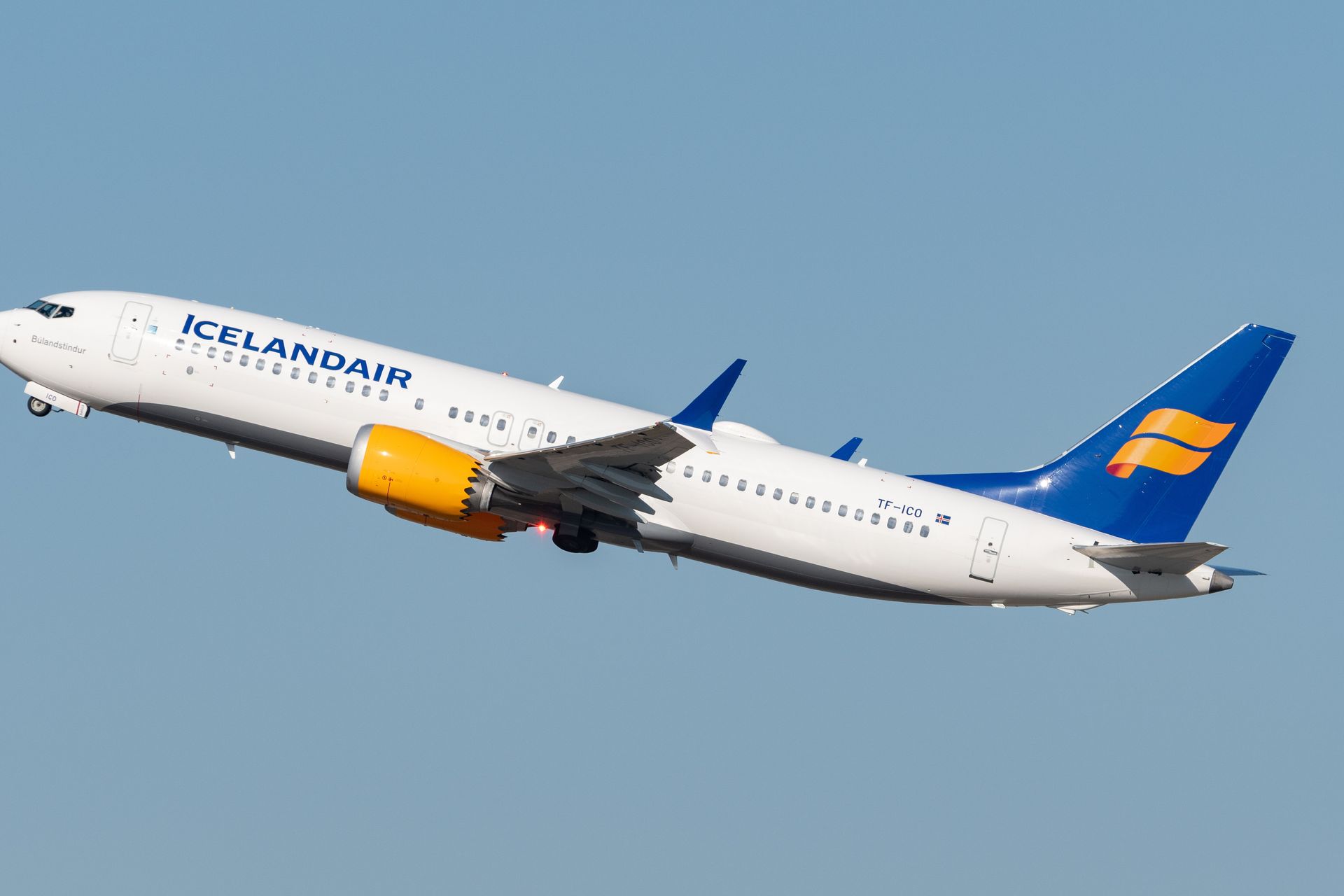
This is a win-win because stopovers can be downright grueling. Taking a nonstop flight is not only better for the environment, but it is also better for your mental health. There have been way too many times travelers miss a connecting flight due to a delay or weather. This then causes them a headache trying to reschedule and reach their final destination.
Airplanes have an effect on air pollution in the world, like other emissions resulting from fossil fuel combustion, aircraft engines produce gasses, noise, and particulates. We understand flying is necessary when reaching certain places, specifically Iceland. However, you can do your part by boarding one flight and not two. Take a nonstop flight instead, even if it means driving a few extra hours to an international airport that offers one.
3. Pack A Reusable Water Bottle
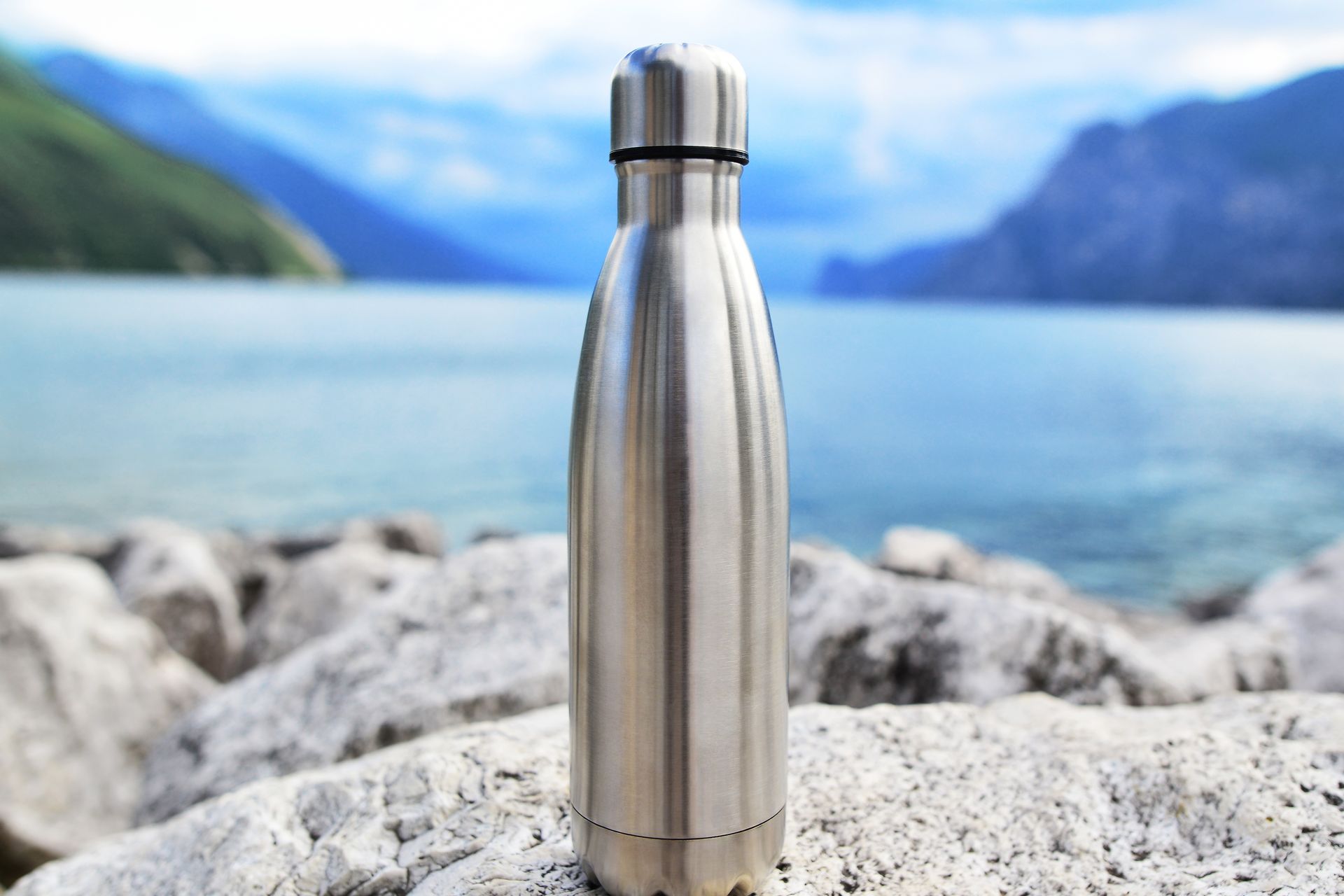
Every year, 8 million metric tons of plastic end up in our oceans. This is equal to one garbage truck full of plastic being dumped into the ocean every single minute of every day. Luckily you can help prevent this by using a reusable water bottle when visiting Iceland,
One of Iceland's visitors' favorite perks is its free and tasty water! A long time ago there was a volcanic eruption that created the Ölfus Spring. Which is deep below the earth’s surface. Then over five thousand years water began to filter very slowly through layers of lava rocks. This created natural and pure alkaline water, which balances the minerals. There is a natural filter due to rainfall and snowmelt, which Iceland is known for. It is one of the world’s largest natural springs and a massive amount of water overflows from the spring into the ocean every day.
You can fill up your reusable water bottle throughout Iceland as the country makes it super convenient to do so. You will find water bottle fill-up stations at popular tourist destinations and gas stations along your journey. If you forgot your water bottle, you can stop at one of Iceland’s well-known stores such as Krónan or Hagkaup to purchase one.
4. Bring Reusable Dishes
If you are planning on indulging in Iceland’s delicious takeout options then you should invest in reusable dishes and silverware. This is incredibly convenient if you are planning on driving The Ring Road, the Diamond Circle, or the Golden Circle. Instead of using multiple paper plates and prepackaged plastic forks, just use your own.
You can also wash your dishes at a gas station or rest area with water after eating. These small changes can really make a difference to the environment. You can find them at most online retailers such as Amazon, or even in Iceland’s grocery stores. They are affordable too, ranging anywhere from $10 to $20
5. Support Local
Fortunately, this one is pretty easy in Iceland because it is an isolated island. Almost all of the restaurants and shops in Iceland are locally owned. You will not find large corporations or fast food restaurants like in America or other parts of Europe.
Iceland even banned McDonald's, so do not expect to find a Big Mac here. This is mainly because Icelanders preferred to eat locally than to get the big named chain back up and running in Iceland. This also goes for Starbucks and other fast-food chains. The amount of locally owned restaurants, bars, and businesses in Iceland is just another reason it is so special.
While almost all of Iceland has local shops, here are some of our favorites!
Kolaportið Flea Market
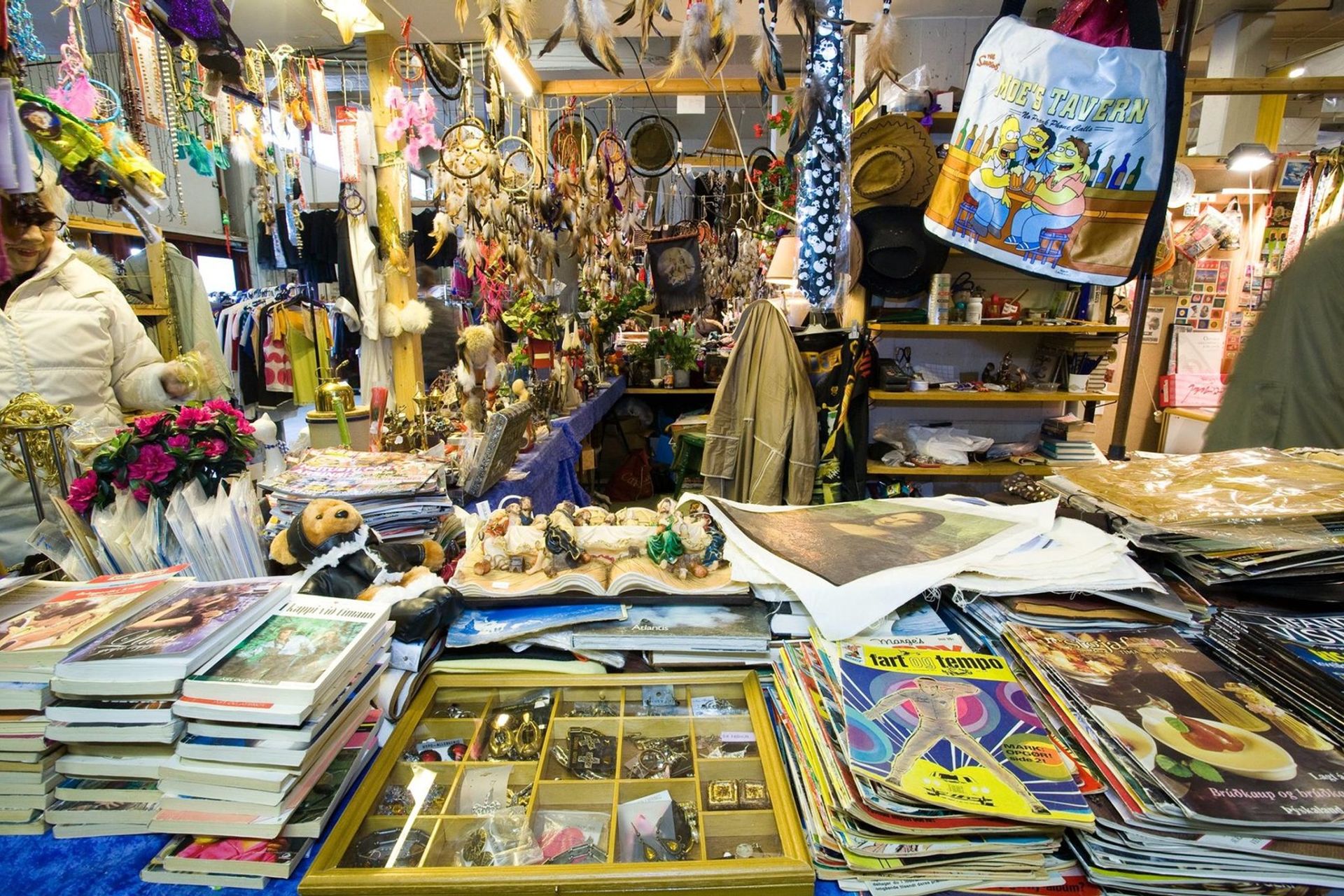
Kolaportið Flea Market is located in Reykjavik and while it may not be a shop, it sure has a lot of locals selling either item. You can purchase anything from souvenirs to books or even clothing. Forget to pack something? Then head here, not only will you get a great deal but you can help an Icelander out at the same time. The flea market is located near both the town center and the Old Harbour.
Mal og Menning

Calling all book lovers, Mal og Menning is the place to go! This Icelandic bookstore has been open since 1940. The store has three levels of books with so many categories for you to indulge in, each displaying an array of both local and international titles of all possible genres. Cozy up with a specialty coffee at Rúblan Cafe, which is located on the top floor. You can even stop by and catch one of their live music events.
Mal og Menning is a breath of fresh air since most tourists are used to popular chains such as Barnes and Noble. This bookstore was even rated one of the top twelve bookstores in the entire world.
Aftur
Nothing says “Eco-Friendly Traveler'' than shopping at Aftur, Iceland’s high fashion clothing store. It opened in 1999 and the items are compiled from recycled textiles. They are known for being environmentally friendly while also dishing out some gorgeous Icelandic clothing.
It can be a little pricey, but it is well worth it when looking for a souvenir or specialty item to bring home with you. Besides, you will not only be supporting locals but also supporting the environment at the same time.
6. Recycle, Recycle, Recycle
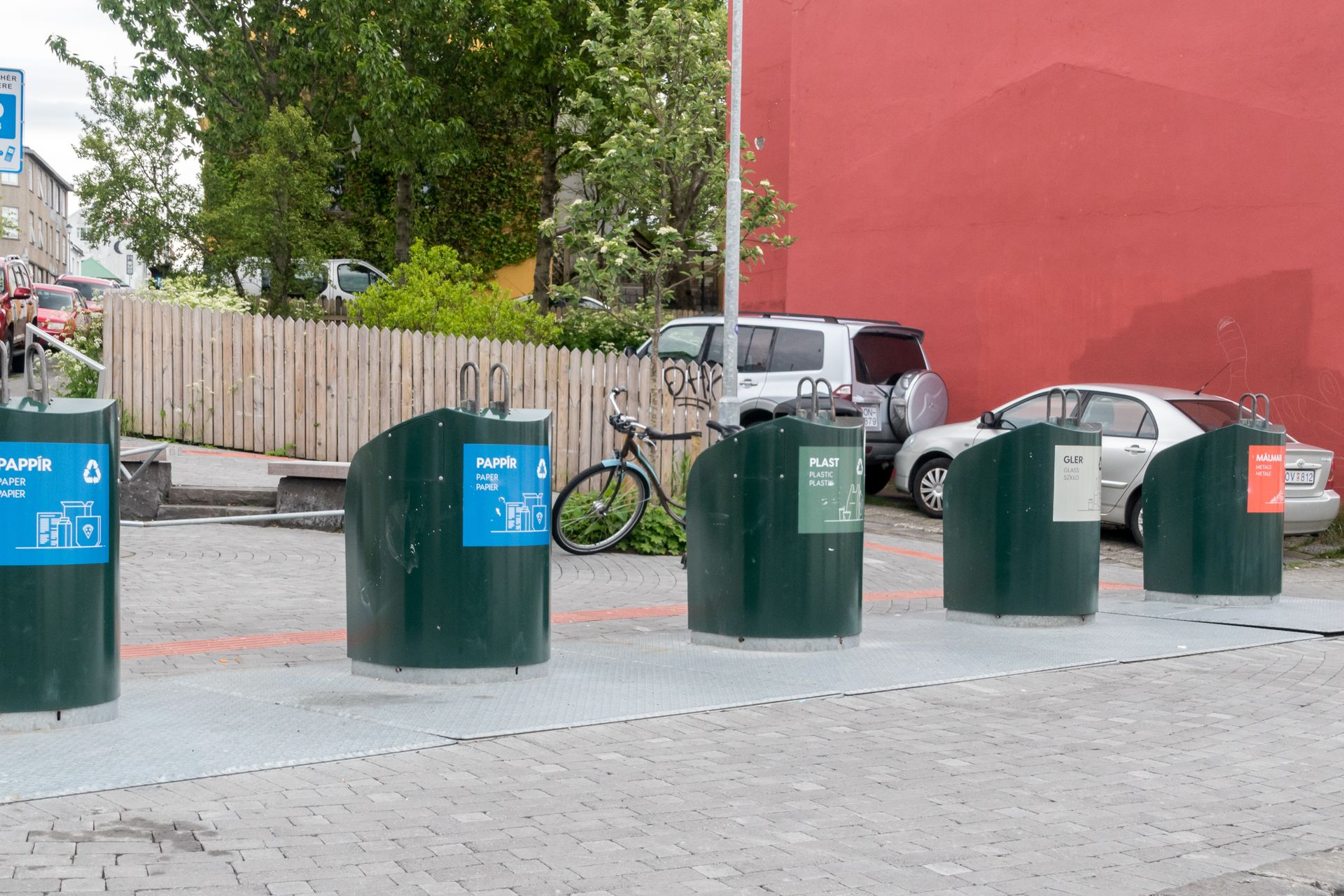
While it may seem obvious, recycling is a great way to help the environment. Recycling helps conserve energy, reduce air and water pollution, reduce greenhouse gasses, and conserves natural resources.
Iceland was even the first country to adopt a nationwide system of recycling fees for all disposable drink containers. The fee is charged on all disposable drink containers to promote their recycling by reimbursing the fee to patrons who return the containers.
You will find recycling bins throughout the country. If you do need to use plastic during your trip, be sure to recycle it in the proper bin. If you have any questions you can always ask locally. But most bins will tell you exactly what is or is not allowed in them.
7. Leave No Trace
It is no secret that Iceland is a playground for all nature and outdoor lovers. From cascading waterfalls to mind-blowing day hikes there is something for every adventure. Whether you want to visit the remote areas of the country or soak in a hot spring, there is one important rule you must follow, Leave No Trace.
This rule is as simple as it sounds, simply leave the area as you found it. That means any garbage, clothing, or even human waste must leave with you. Popular locations such as Seljavallalaug Hot Spring have minimal upkeep. This means it is our duty as tourists and locals to keep it as clean as possible. The Leave No Trace rule is a simple solution to keep some of Iceland’s magnificent locations stunning and well-kept.
8. Walk & Bike When You Can
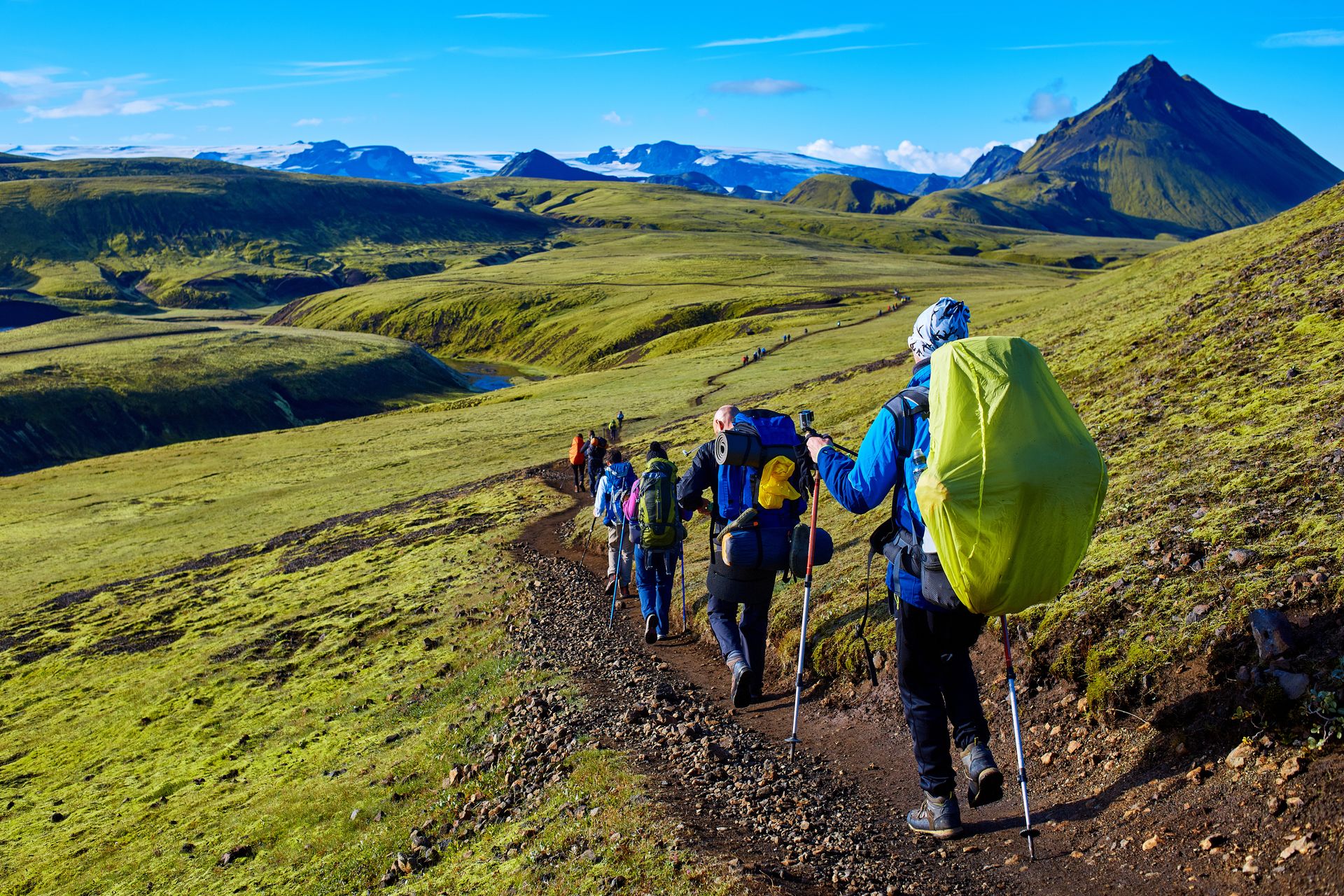
You will need a rental car to visit most of Iceland, due to a lot of its breathtaking tourist destinations being in secluded areas. Don’t worry you can still do your part after a day of driving by hiking and biking when you get there.
This means giving your rental car a break once you get to your destination of choice. From there, rent a bike for the day to explore the city. Or, simply spend your day walking around town. This is much better than driving all over. This not only benefits the environment but also your body. Because let's face it, sitting in a car all day can make you feel lethargic. Get outside in the crisp mountain air of Iceland or take a long walk along the coast.
9. Conserve Water & Energy
Since we already covered packing a reusable water bottle you are already helping conserve water. But there are some other ways you can continue to help conserve water and also energy. When you are in a hotel, pretend you are in your home. This means turning off all the lights before leaving for dinner or turning off the television when you are not watching it. Also try not to take an hour-long shower just because you are on vacation, but don’t rush through one either. Just be mindful that even though this is not your home, it is someone else's.
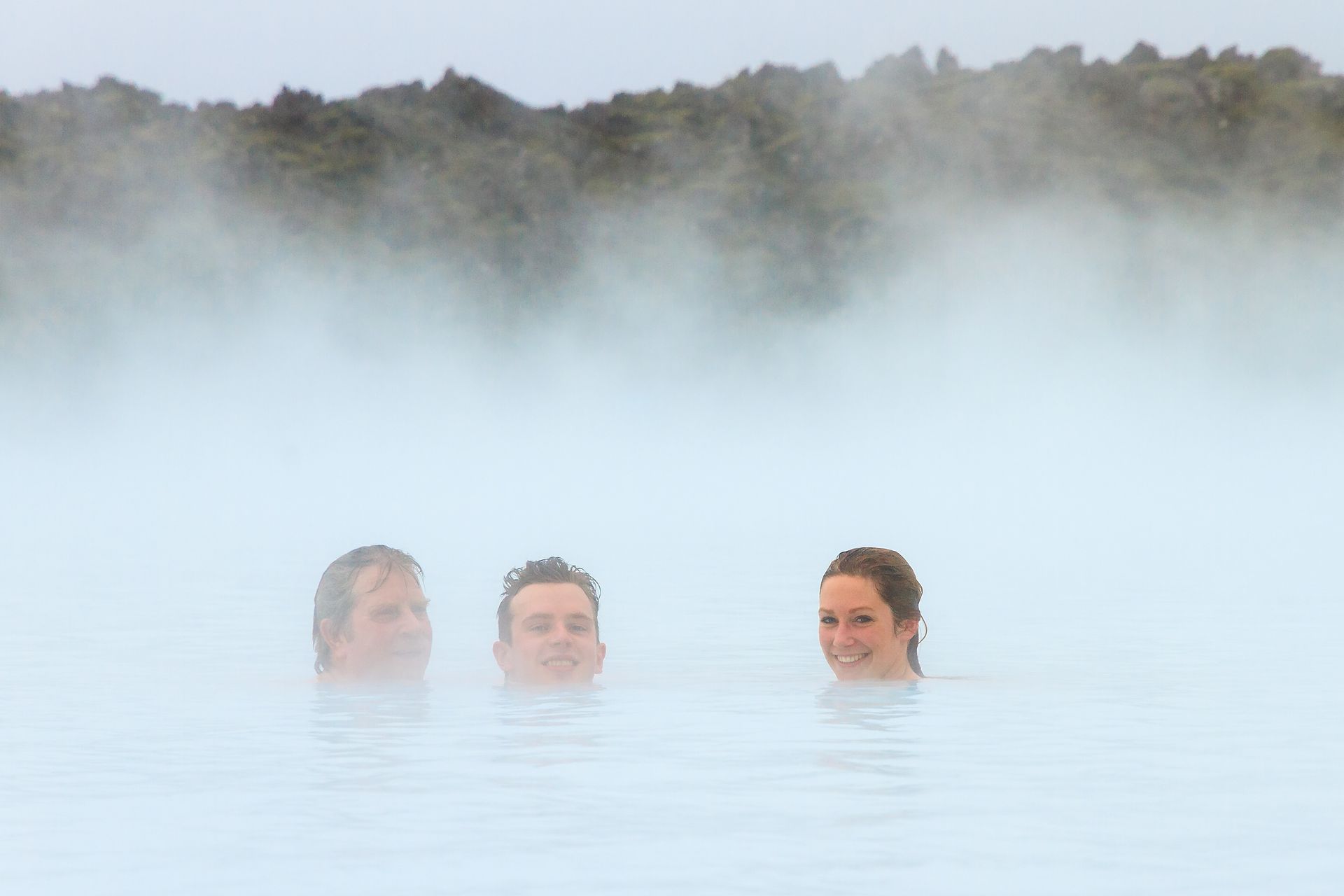
Another great travel hack is skipping the shower after soaking in a hot spring in Iceland. Locals recommend keeping the minerals on your skin for eight hours after. This will allow them to seep deeper into your pores. After you shower, you will feel how soft your skin feels. A win-win for both you and the environment.
We recommend using these tips to help keep Iceland beautiful. Being an eco-friendly traveler is way easier than you think, especially when visiting a country that supports it so well. Keep traveling, and keep exploring all while keeping the world alluring.
FAQ:
How is Reykjavik eco-friendly?
The capital city of Iceland has low-carbon transportation using sustainable energy and encouraging eco-friendly tourism.
What is the most eco-friendly transport?
Cycling and Walking are the top two modes of transportation. That means driving to where you need to go and then walking as much as you can when you get there.
Is hot water free in Iceland?
No, hot water in Iceland is not free in Iceland. But locals say the cost is cheap compared to other countries.
Latest Blog Posts
 Guides
GuidesThe 2022 Eruption of Fagradalsfjall Volcano - An Unforgettable Iceland Volcano Eruption
Iceland has become a top destination for mind-blowing mountain hikes, volcanic hot springs, and icy glaciers. Adventurers flock to the land of fire and ice to experience these thrilling opportunities! So it is no wonder why Iceland's volcanic eruptions attract visitors from all over the world!
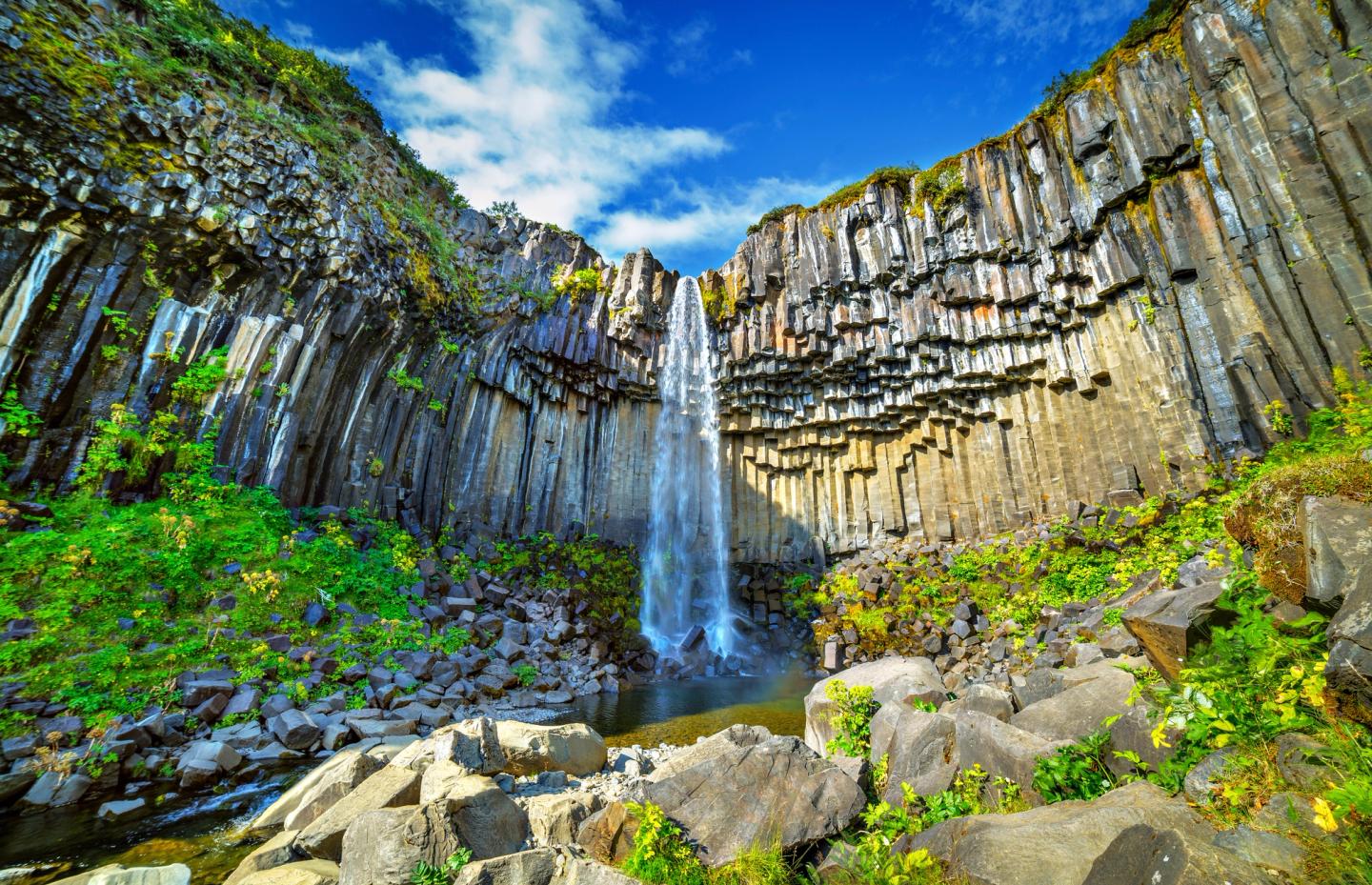 Waterfalls
WaterfallsGuide to Svartifoss Waterfall in Iceland
Svartifoss, or the 'Black Waterfall', is an exquisite natural wonder tucked away in the Vatnajökull National Park of Iceland. Known for its distinctive basalt columns and cascading water, this waterfall is a must-see for nature lovers and travelers.
 Itineraries
ItinerariesTop 11 Must-Visit Volcanic Sites in Iceland
Iceland has over 130 volcanoes located throughout the country, with 30 of them still active today. Some of them are famous for recent volcanic eruptions, while others have not erupted in thousands of years. There are so many notable Iceland volcanoes, it is hard to know which ones you can visit. With the nickname of The Land of Fire and Ice, you know you won’t be disappointed when it comes to Iceland's volcanic sites. Here are our top 11 must-visit volcanic sites in Iceland!